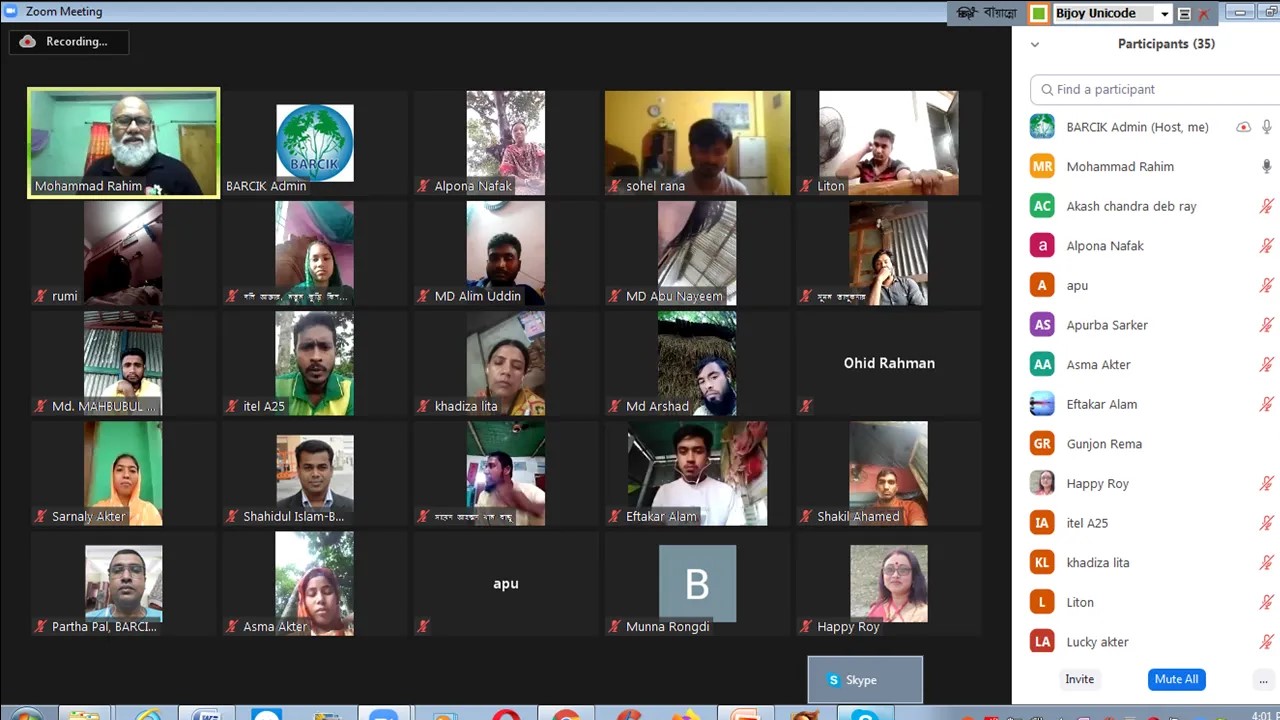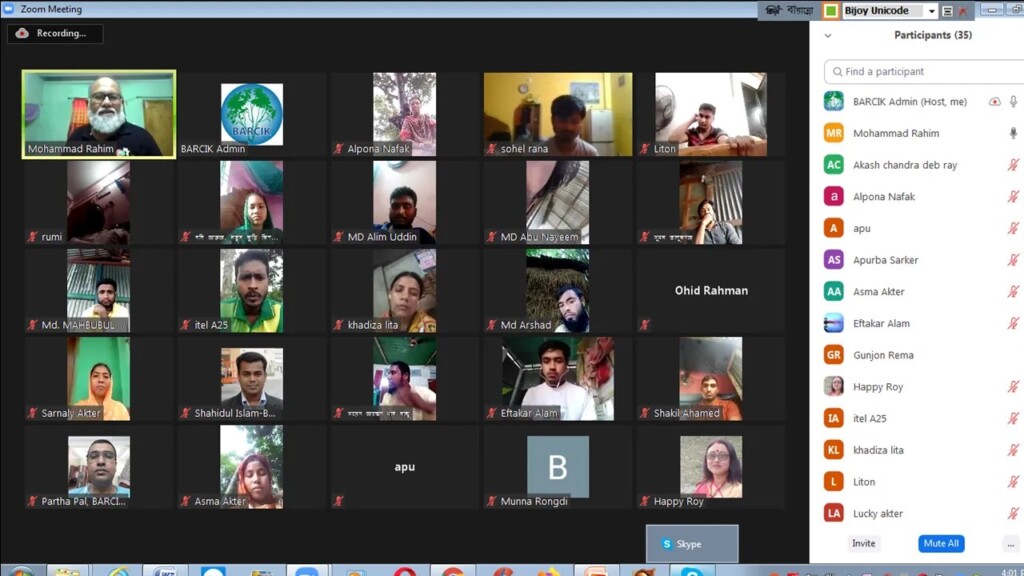By Happy Roy from Netrakona
BARCIK arranged an online workshop on ‘Importance of Conservation of Agricultural Biodiversity’ recently. The workshop was attended by members of youth and farmers organizations from different parts of the Netrokona region and officials from various areas of BARCIK. Netrokona Region Coordinator Ohidur Rahman started the workshop with a welcome discussion. Syed Ali Biswas, Director, BARCIK, then discussed about the objectives of the workshop.

Professor Dr. MA Rahim, Director, Bangladesh Agricultural University horticulture Germplasm Center attended as the chief guest and facilitator of the workshop. This centre is the second largest tree museum and largest living museum in Asia. Mr. Rahim said, ‘We have built the second largest tree collection in the world. We produce a variety of fruits here the whole year round. Hundreds of varieties of fruit trees bear fruit throughout the year. We want to bring this tree to the people to benefit them. There exists about 11,000 varieties of fruit trees in this germplasm center under my supervision.’ Regarding the importance and need of diversity, he said, ‘As our country’s population continues to grow, diversity is needed for the nutrition and food security of this growing population.’ He asserts, ‘Millions of people in our country are suffering from malnutrition. Some are getting sick by overeating while others are getting sick by not consuming nutritious food. A person needs to consume 400 grams of fruits and vegetables every day. There we eat only 220 grams. By doing this, our body is going from lack of necessary nutrients.’ Dr. MA Rahim said, ‘We have 350 varieties of mango trees in this germplasm center. Some are without seeds, some are very juicy again. There are also mango varieties for diabetic patients. There are also mango trees that can adapt to saline areas. From one of these seeds up to 7/8 seedlings can be made.’ He then described the different varieties of mangoes. Such as Chaufla, Hualak, Chua, Aromanis, Mardi, Taiwan etc.
Mr Rahim added, ‘Diversity plays a role in creating employment. Many are making good money by selling a variety of crops. Carrots have more nutrients than cucumbers. So now carrots are being cultivated and sold more. Planting a variety of crops on the one hand ensures food, nutrition and cash and on the other hand, if there are many trees, our air will be clean. Carbon emissions will be less, air pollution will be less.’ It is to mention the discussion of this workshop was divided into two parts. In the first stage, the practicing farmers who are conserving the biodiversity in their village in different ways shared their experience and in the second stage, an institutional researcher facilitated the workshop. In the first phase, Abul Kalam Azad, a farmer from Ashujia village of Kendua upazila and Sayed Ahmed Khan Bachchu from Rameshwarpur village of Atpara upazila shared his experience with others.

